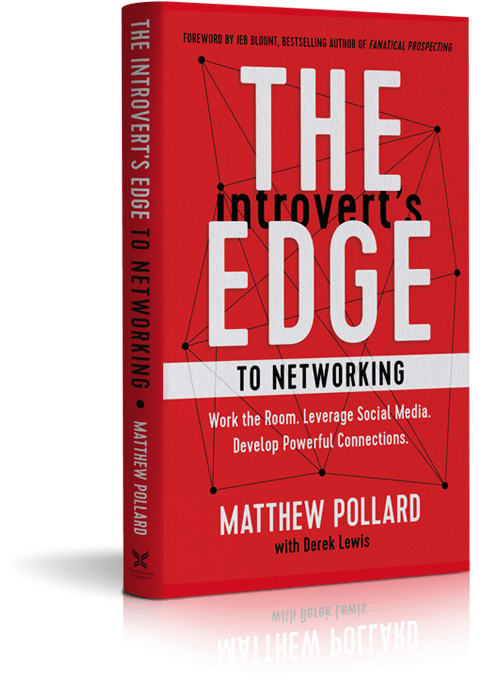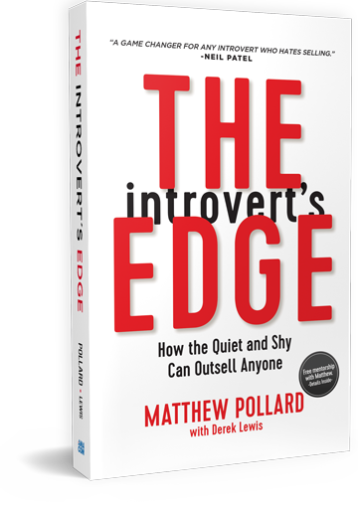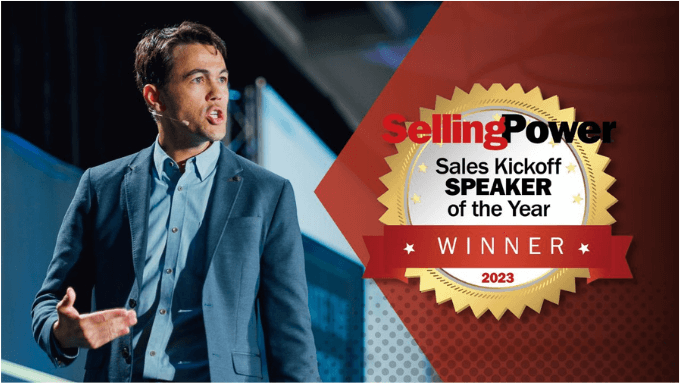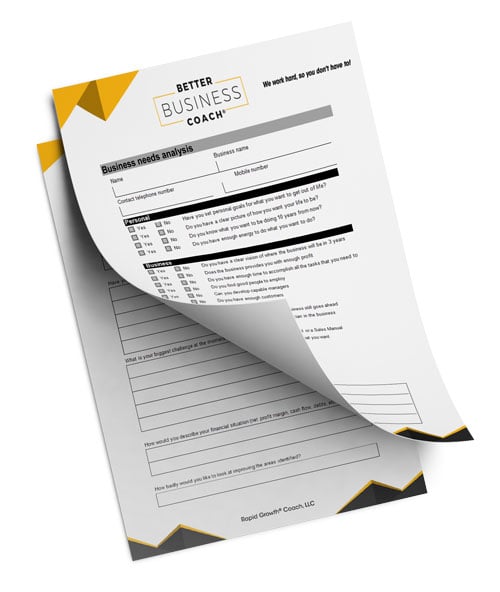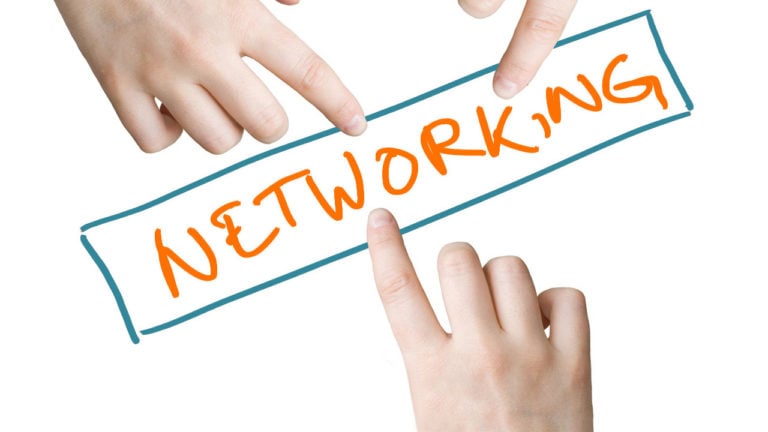Better Business Coach Transcript
Matt: This is Better Business Coach, session number 25. Hello everyone, and welcome back to Better Business Coach. My name’s Matthew Pollard, and as always, I am your rapid growth guy. I have with me for part 2, Judy Robinett. And we’re having a wonderful conversation about networking, the importance of networking. And for those that missed the first episode, I’d suggest you really go back and listen to that. And she’s the author of how to be a power connector. And it’s a best-selling book guys, so she’s got so much value to offer. Judy, so welcome back to part 2.
Judy: Thank you.
Matt: So let’s get straight back into the content, because otherwise I feel the – just knowing the phone call that we had when we first met, it went from 20 minutes to nearly an hour and a half. So let’s see if we can really just action pack this full of information for people. So, the next question I’d really like to ask you is that– Networking’s important. I mean, everybody knows that networking’s important. And it’s been important for the longest period of time. Everyone knows it’s who you know that knows what you know that’s important. But why is this changing? Why is it becoming more important even now?
Why is Networking Important in Business?
Judy: I think it’s becoming more important because we have more access to people. It’s easier now to connect with anyone on LinkedIn or Twitter. The world has really opened up. I mean, just like crowdfunding has democratized capital, so people are connecting more and more. An old school network was who you knew, and what you knew. But new school is, who knows you. Because your reputation capital is now absolutely critical. And I think part of this is because of all the financial mess on Wall Street. So people are much more cautious. So it is important, and it’s always been the unwritten rule of success – of how high you go. And study after study shows your network equals your net worth. And everyone on this call, write that down. It’s absolutely critical.
Matt: That’s great advice. And look, people very much underestimate that. Because everybody thinks that, “If I work hard, and if I continue through my path, eventually somebody will notice me.” And that’s just not the truth anymore is it?
Judy: No, that’s a fairy tale. I mean, I did that. And you hit the wall, and then you wonder, “Why aren’t people noticing me?” And it’s because you weren’t anywhere people could notice you. You didn’t make yourself available. You didn’t get in the right room, as we talked about last time. And the reason it’s so important Matthew, is – every resource is attached to a human being. People write the checks, people know about the deals. People have the opportunities and know about people who need to be coached. And so you have to have relationships with the right people that can help you. If you just have relationships with your friends and family, and people are who are just like you – then you’re probably hitting the wall, trying to find clients.
Matt: Anthony Robbins talks about this frequently. That you have the same value and vision and views as the 5 people that you spend your most time with. Is that something that you believe in as well, or are you suggesting that if you’ve got a large enough network, that that doesn’t matter as much.
Judy: I think that it really is true to a certain level. And what happens is, when you have people that are bigger thinkers, and they make more money, and are at different levels – it makes you think, “Oh my gosh.” I mean, how many times have you met somebody that was – had a lot more money then you, and you looked at them and you thought, “You know, they’re not any smarter than me. What on earth happened here?” And so it makes you get out of your comfort zone, and think about a different business model. And certainly having – my book is the 550 150. And I talk about how critical that 50 circle is, beyond your friends and family and work colleagues. Because if those people are diverse, like I know Rosie Rios, at the US Treasury. I know people that – at Draper VC, I know Tim Draper. If I have people that are across different industries, I could pick up the phone, and I have access to information to whatever it is I need.
And so I tell people, even if you’re in a smaller community. I mean, I at one point lived in Twins Falls, Idaho – population 30 000. And I was Vice President of a hospital, I wrote just a small column for the local newspaper. Which was no big deal. But my neighbor was a senator. So having access to the media, having access to the political power to these different organizations, I found out how important that was. I could make things happen really easily.
How to Setup a Business Network
Matt: Judy, if we we’re gonna look at, and let’s get back to basics. Because a lot of these people that we’re speaking to may have great connections, but a lot of people also want. What would you suggest is the one thing that they can really do to propel their career forward with networking and getting – to really get out there and get known?
Judy: So the one thing that I advise people to do is to write down the network you already have. So on average, we know 632 people – and I don’t want you to write those down, I just want you to go out to 100. And write down the people that you already have in your network. And what happens, research shows that if you do that, you start seeing obvious connections you could make. Introductions for people, but you also see holes that you can fill. But, when you write ’em down, the one thing that I’ll tell you, the biggest mistake is – people don’t use the network they already have.
And I’ll give you an example. My book agent, who I’d only known for 6 months, Wendy – called me one day, and she said, “Judy, I’m gonna introduce you to Mike Muhney, he’s of the CRM industry. He’s the co-founder of ACT! Software. He built and sold that software for 48 million. He now has an app called Viper that’s free on iPhones. And I think there may be some connection with you two.” So we flew to Salt Lake, and we got together for lunch. And I talked to him, and I said, “You know I’ve never even heard of this app. What have you been doing for marketing?’ And he told me, and he said – he looked really sad, and he goes, “Oh if I could just get an article in Success Magazine.” I said, “Mike, when you go home, you pick up the phone, call Wendy – who you’ve known for 6 years – whose friend is Darren Hardy, who’s the publisher of Success Magazine.” And he literally almost fell off his chair.
And I can tell you that this happens every week to me. I will meet with people, and they don’t realize that the resources, the answers they have are already in their network. Because guess what? They’ve not sat down with those people and said, “This is where I’m at. This is what I’m trying to do. Number one – what other ideas do you have for me? Number 2 – who else do you know I should talk to?
Matt: I think it also comes down to be real with people. Because when you and I spoke, you told me what you were struggling with, and that allowed me to help you.
Judy: Yes.
Matt: And as a result, you got a benefit. And then I told you what I was struggling with, and you were able to help me. However, most people want to give their resume – even to their best friends. They want to tell them everything that’s working, and everything that’s going well. But they don’t mention what they’re struggling with, and where they’re looking for help. And you are exactly right. I get a lot of assistance from some of my very best friends, and some of my very closest networks. And it’s really just because I make it very obvious what I’m doing well. However, I also make it very clear – and probably more clear, what I could use help with.
Judy: Yeah, absolutely. And the more vulnerable you are, the more people love you. And it’s really true. I mean if you think about it, then you want to help. I mean, we normally want to help people. And why wouldn’t I help Matthew, or somebody else who calls me. I mean, when I read your article, I went, “Good grief, this is a smart dude. I need to reach out and just tell him thanks.” And really that’s what I did. I think I put in there that I’d love to talk if you had time. But you didn’t have to say, “You can talk to me.” But it you approach people, and you’re authentic and you’re real – that just opens doors.
Matt: That’s completely true. And it’s funny, I get a lot of people that’ll send me emails and thank me for things that I’ve done. And this podcast, I’ve been inundated with emails. However, anybody that asks to talk to me, or anyone that asks a question – I always want to respond. Because those are the people that are really saying that they value what I have to offer, and they need help. And so many other people, they won’t ask questions, and they won’t ask for help. Because they want people to believe that they’re perfect. I mean, we all know that nobody’s perfect. And I’ve got my own faults, and I’ve got my own things that I’m struggling with. Yet, I’m still offering assistance. And everybody needs to be able to believe that they’re allowed to share that. They don’t have to show that unbreakable force field that shows them as the perfect person.
Judy: Yeah. I have people reach out to me, and they go, “Oh I’m so shocked. You’re this–” They think I’m a famous author, and that I took their call. Well of course I took the call, I mean I wrote the book to help people. And I get emails from people around the world. I got one from a young man in Nigeria. And he said, “By the time he got to chapter 3, he got his company funded.” I mean, I literally stood up and did the happy dance in the home office, I was so excited. Because my goal is to– I mean, why would you take all the time and effort to do a book, unless you wanted to help people. So yes, I agree.
Matt: I remember when we talked about that. It’s great when it gets to a point where it becomes about helping people. And your greatest excitement comes from the fact that somebody else achieved success. And yet people won’t make contact, and won’t ask for help, and won’t give you feedback. Because they feel that they’re actually intruding, when really – as an author like yourself, you’re in a silo. You don’t know any of the successes or any of the struggles of any of your readers, unless they call you, and unless they make contact. And you actually really want to hear that.
Judy: Yeah, yeah. And it’s validation from the market, and I do want to hear it, and I want to hear what else. I mean, now I have people writing to me saying, “You need to do book 2.” And people will reach out to me on the book. And I’ll tell you, I got brave, and I started asking people, “Would you kindly consider writing a short, authentic book review?” I now have close to 200 book reviews on Amazon, because I asked people. Because I wanted to get the word out.
Matt: I think it’s all about being real and being personable. I’ve got a book that I’m putting together at the moment. And for people that have read it, I tell this story in one of the earlier chapters about when I was 18. And I’d just got my first car, and I put an amplifier in the car, because I wanted to be one of those crazy people that played loud tunes in my vehicle. And I forgot to put a fuse in, because I asked a friends help, and they said that they knew what they were doing. 15 minutes down the road, I set fire to my entire car. I set fire to all of my electricals. And you know what? It’s that story that people say, it made me personable, and it made me real. Because people that just show this perfection barrier, people don’t feel like they can relate to you – because they know they have imperfections, and therefore they feel they can’t relate with you.
Judy: Yeah. You just have to be real.
Matt: Let’s move into what some of the biggest mistakes are that, I guess people make when they’re networking – and how they could avoid those, so that they get best effects out of their networking?
Judy: We’ve hit on a lot of them. Number 1 is – make sure that you use the network that you already have. That one’s absolutely critical. The second one is – really think hard about your assumptions and your beliefs about networking. I mean, when you realize that your net work equals your net worth, then you have to rethink your assumptions. And these usually – I mean, mine were that I grew up shy. Who would want to talk to me? I wasn’t born with a silver spoon in my mouth, I didn’t go to Harvard. I wasn’t that cute. So I had all of this crap going around in my head. So you have to like think about the assumptions you have, and readjust those – that people out there will help you if you ask. That they are kind. Most people do want to help you. And then, make sure that you put your foot down on fear, and that you just take tiny steps.
The other one, we talked about it in the last session a lot. Was, make sure that you get in the right room – and that you focus on people who can and will help you. You have quality relationships. And realize quality doesn’t – quality trumps quantity every time. It doesn’t take gazillions of people on LinkedIn or Facebook. You want people who truly will have your back, and have your future. And I talked about a robust network. People, if you pick up the phone – they’ll return your call. I can introduce people now, and I don’t even tell them who the other per– Anything about each other. And they’ll say, “If Judy introduced me, I know I need to talk to you.” And that’s the kind of network that you want. And if you just take small baby steps.
Oprah had a campaign last year that said, “Just say hello.” And you find out if you just take a few small actions, that you can increase your network and find people that will add quality, and help you get to your goals. So I have just a very simple formula, and it is – quality relationships plus strategy to your specific goal. And this is why I call it strategic networking, instead of just acquiring thousands of people on Facebook or LinkedIn. You have people that really can help you get to your goal.
Matt: That’s great advice. And when I grew up, I was very similar to you. I was very introverted myself, and even my best friends, I struggled to communicate with and share my own personal thoughts and feelings with. And that was something I had to grow out of. But as I grew out of it, what I realized was a lot of these people were very negative, and actually tried to put me down every time I got success.
Judy: Yes.
Matt: And so it’s very important, and in America, you have the analogy, “Crabs in a bucket.” Every time somebody starts to achieve, it makes people feel worse about themselves, and they want to pull you down. And what was funny is, I changed a lot of my friends. And that was my choice. Because what I found was that I was never gonna get where I wanted to go, while having people pull me down. Now I’m not saying that people should transition their friends out if they feel that they’re not offering them value that can advance them. However, if they’re not promoting you, and not making you feel good about yourself – or trying to pull you back into the bucket, well then maybe you need to look at it. And when I transition friends, I mean – I’ve now got a friend called Paul Migarelli (14:16?), and I’ll shout to him, ’cause he’s a great guy. But he’s one of those that you’ll call, and he’s just genuinely interested in anything you say. So anytime I’m down, or anytime something goes wrong, I’ll give him a call. And it’s like he finds it his duty to remind me that I’m awesome.
Judy: Yes.
Matt: And he wants to tell me. And he won’t get off the phone until I say, “Alright mate, yeah I get it. I’m awesome, I’ll get back to work.”
Judy: Okay. That’s wonderful. Good for Paul.
Matt: Look, you’ve gotta have friends like that. I’ve got different groups of friends that promote me and make feel great in different ways, and offer me advice in different ways. And I do my best to offer the same level of value to them. And I feel that that’s something that everybody’s got to do. I’m sure, Judy – when you first started, there were certain people that really pushed you to excel. And there were other people that told you how hard it was going to be, and reminded you that you couldn’t do it.
Judy: Absolutely. And you need to have those affirmations, and you need to real them daily. I mean one thing that I have people do, and the research shows. This increases your self-esteem better than anything else – is a victory log. And you just take out a piece of paper, and number 1 to 50. And you write down things you’re proud you’ve accomplished. It can be little things or big things. Like, “I got a D geometry in high school, so I still graduated.” And you review it daily. Because it shows, and this is particularly true for women – tend to review their problems. And if you review that and you have affirmations, “I am bold, I am strong.” And it sounds silly, but research shows it works.
I mean, there was a guy in the 19 – I think 20’s, who had his mental patient say, “Each day in every way I’m getting better and better.” And he repeated it 30 times a day. And like 90% of them got better on their own. So what you tell yourself, what you say, what words you’re speaking – are incredibly important.
Matt: They definitely are, and “Think and Grow Rich,” My Napoleon Hill talks about this in a substantial way. You tend to beat yourself up. A lot of people do. They focus on things that are going wrong, and they focus on every little thing they could do better. But when they get a success, they don’t even jump up and down. They try and devalue that. And by saying, “Oh, I worked hard for that, therefore I got it.” And Anthony Robbins talks about this a lot of the time. Like you said, when you found out one of your clients floated their company, and all of a sudden got all of that success by chapter 3 of your book – you jumped up and down, you relished that moment. Because if you don’t do that, you’re going to hurt your success. But going back to networking. If you don’t have friends that remind you of those successes, when you’re feeling as low as you possibly could be – then you’ve just got the wrong friends.
Judy: Yeah, and I’ll tell you, when I was younger, I used to think everybody else was smarter or I needed to learn more. And every once in while I would notice that I thought something different, and my way turned out to be right. And so I will often tell people, “Ask 3 or 4 people about ideas, or run things past ’em. And make sure they’re an expert at it.” I mean, you don’t ask just your friend, “How do you put up a website?” Or, “How would I find more customers?” Unless they know how to do that. So you be careful on whose opinion that you listen to.
Matt: When I first started going through rapid growth coaching, and teaching people how to have a unified message – how to go out and find those niche markets, and work on sales. The amount of people that would come back to me afterwards, and this was because I just hadn’t nailed down my sales script just yet. But they’d come back to me, and they would say, “I spoke to my next door neighbor, or the guy down the street. And he said that this was risky, so I’m not entirely certain that I want to do it.” And I’d be like, “Okay, so what does that guy do for a living?” He’s like, “Well he’s had a job for 30 years working for a plumbing company.” I’m like, “Okay, so what experience does this plumbing company have in doing what you’re doing? And let me ask you a separate question. When you decided to go into business for yourself, did they tell you that was risky too?” “Yes.” “Now you’re successful, are you glad you didn’t listen to him?” “Yes.” “Okay, so do you feel that perhaps they might just say that anything that’s different from what they do is risky?” “Oh you might be right there.”
Judy: Yeah.
Matt: And then all of a sudden it transitioned to, “You’ve got to have people that are there telling you the right messages, but have the expertise.” If I’m an accountant, I should be able to give accounting advice. But I shouldn’t be able to give legal advice, and there’s laws against that. Yet, when it’s your best friend, you feel like you can give legal advice, accounting advice, structuring IP – everything.
Judy: Yes, absolutely. And it’s true, you have to be careful who you get advice from. And make sure that they have the ability to really help.
Matt: And that’s why you do so well, because you have a Rolodex of people that you can contact, and that you’ve helped, and you’ve had experiences with. But you know who can help you with what. And you know who you can help, and with what. And that’s what networking’s really about. It’s about how I can help you, and how you can help me. And, without having that in mind, that somebody’s going to help you if you help them.
Judy: Yes.
Matt: But what I want to do Judy is, I just want to, ’cause we’re getting to the end of this episode, and I just want to really focus on one quick thing. And let’s imagine for a second that I just woke up from a coma. And I hadn’t made any networks in the last 3 years, and I really just had to start from scratch. What are the 3 things that you would advise that I do, to start establishing my network straightaway?
Judy: I would first ask you what your goal is. And then based on your goal, I would make sure that I got you in the right room. And as we talked, I think in session 1. I would have you join a powerful organization – volunteer for a group that has leaders, people of influence, gravitas, money. So that would be one of the first things that I would have you do. The second or third thing is, I would try to find industry or a conference that would be relevant to what you want to do. So that you could go and meet like minded individuals, like we’ve talked about before. And get relationships established – so that you can have your finger on trends, the best information, the best deal flow, the best whatever. So joining a political organization, I would also try to find one locally in my community that had something to do with the arts. Because that is diverse people. It’s across all different industries, usually across some geographic span. And then finally, I would think about where I could go either coast. East coast or West coast to get in some kind of a group that had national exposure.
Matt: Brilliant, that’s great advice. And Judy, I know that people are gonna identify with the advice that you’ve given, because it’s been hugely valuable. And I’m gonna ask you where we can find you. I know that you’re absolutely everywhere really, so it’s not gonna be hard to find you. But if people were trying to get in contact with you, how would you suggest they do that?
Judy: Send me an email at [email protected]. I’m on LinkedIn, I’m on Twitter @judyrobinett. I have a website that has lots of free resources on it, and free networking tips. So any of those things work great.
Matt: Sounds great. I’ll put all of this information down on the show notes, so people don’t really have to go very far. You’ll just be able to click on the hyperlink and get straight to any of those. But Judy, thank you so much for being on the show, I really appreciate you hanging in with us for a double episode. I just know that the audience is gonna really value the information that you’ve given out.
Judy: Thanks so much, I really enjoyed it.
Matt: So everyone, thank you very much for tuning in to Better Business Coach Podcast. If you haven’t already, please take a second to subscribe and post your review with a 4 or 5 star rating. I would really appreciate it. Those reviews and those star ratings is what tells me that I’m doing a good job. So please take a second to do that, it really doesn’t take long at all. Thank you very much for tuning in, and I’ll see you next time, cheers.







